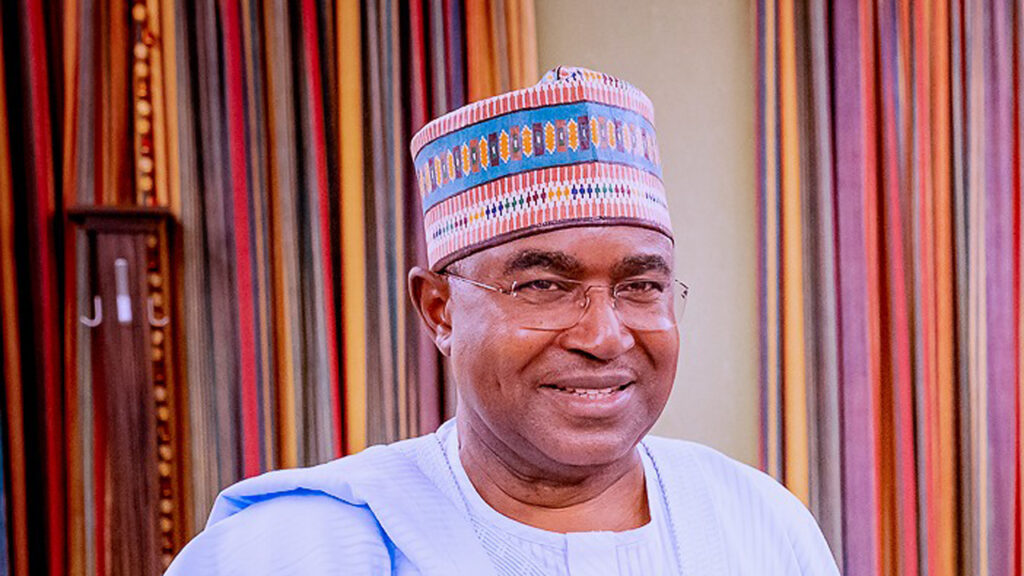
• FG orders agencies to leverage 5G technology, allays fears over health concerns
Senate President Ahmad Lawan, yesterday, advocated use of drones and other technologies for surveillance against smuggling of petroleum products across Nigerian borders to neighboring countries. He made the observation during a meeting on border surveillance, which he held with some security chiefs.
In attendance were Comptroller General of Nigerian Customs Service, Col. Hameed Ali (rtd); Commandant General, Nigerian Civil Defence Corps, Ahmed Abubakar Audi; representative of Director General of the Department of State Services, San Gesto and representative of Comptroller General of Nigerian Correctional Service, Haliru Ishaka Abdulmumini.
Lawan said: “We are all aware that some of the products, particularly Premium Motor Spirit, is smuggled out. And yet we paid subsidy on what is smuggled out. This meeting is to look into ways of controlling the smuggling of petroleum products with a view to minimising the cost of fuel subsidy to our country.
“I know, individually, these organisations have been carrying out their responsibilities on this. But I think we are coming to a special moment. Our situation is such that we cannot afford anymore to allow this smuggling business to continue because the cost is very huge and debilitating to our people.”
Lawan stressed the need for “application of technology in surveillance and who should host that technology.” He promised: “This is going to be a special partnership between the National Assembly and the executive arm of government because today’s situation demands that we do things differently.”
Responding, Ali said his agency had been doing a lot in trying to ensure smuggling of petroleum products out of Nigeria is reduced to the barest.
He, however, complained of porous borders and the absence of governance at border communities, which he said, was making the job difficult.
THIS came as Federal Government, yesterday, directed all security institutions to immediately leverage Fifth Generation (5G) technology, when it is deployed, to enhance security in the country.
Launching the National Policy on 5G for Nigeria’s Digital Economy, President Muhammadu Buhari said the Federal Government will take full advantage of the opportunities 5G provides for the economy, security and well-being of the nation.
Buhari also allayed fears over health safety of 5G, saying such issues have been “effectively addressed” through the development of a policy that suits the country.
On benefits of the technology, the President said it can support virtually every sector of the economy, including enhanced connectivity, improved healthcare, education, while fostering smart cities and boosting agriculture, among others.
He explained: “It will also support security institutions with real time communication. 5G is significantly faster than earlier digital technologies and it provides near real-time communication. This can play a key role in boosting our efforts toward enhancing security across the nation.
“It will enable our security institutions to effectively deploy robotics, autonomous vehicles, augmented and virtual reality, to address any security challenges that we face.”
He assured investors that the Federal Government will continue to provide an enabling environment for their businesses as Nigeria begins roll-out of the technology.
He directed Minister of Communications and Digital Economy, Isa Ali Pantami, to supervise implementation of the policy with support of other government institutions. He also used the occasion to provide a rundown of how his administration has created an enabling environment for investments to thrive in Nigeria’s digital economy.
The President noted that the journey started with launch of the National Digital Economy Policy and Strategy in November 2019, as well as launch of a number of policies to strengthen the digital economy. These include the Nigerian National Broadband Plan and National Policy for Promotion of Indigenous Content in the Nigerian Telecommunications Sector.
He noted that under his watch the agreement of the National Economic Council to peg the cost of Right of Way at N145 per linear metre, which was made in 2013, was only implemented in late 2019, after intervention of the Federal Government.
According to the President, the Information and Communications Technology sector played a prime role in enabling Nigeria’s economy to swiftly exit the recession triggered by the COVID-19 pandemic.
He said: “The GDP Report of the National Bureau of Statistics showed that the ICT sector was the fastest growing in the fourth quarter of 2020 and entire year 2020, recording double-digit growth rates of 14.70 per cent and 12.90 per cent respectively.
“The sector also recorded a 17.92 per cent contribution to our GDP in the second quarter of last year. This was its highest ever contribution. All these impressive and significant achievements have justified our efforts to support the growth of our digital economy.”
Meanwhile, Pantami affirmed that the sector recorded unprecedented achievements with increased remittances to the Federation Account, resolution of lingering issues in the industry and successful auctioning of the 3.5 gigahertz (GHz) spectrum for the deployment of 5G technology.
He expressed confidence that given experiences from other countries and available research, Nigeria would derive maximum benefits from the deployment of 5G technology.












